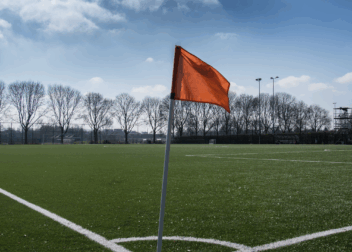Emergency Funds Are Your Sixth Man
- May 16, 2025
- Investments, Student Athlete
- 2 mins read
Emergency Funds Are Your Sixth Man: Why Athletes Need Cash on the Sidelines
Every athlete knows the value of a strong bench. When your starters get tired, injured, or need a break, the sixth man comes in to keep the game alive. In the world of money management, your emergency fund is your sixth man — always ready when life throws an unexpected challenge your way.
For student-athletes navigating the ups and downs of NIL (Name, Image, and Likeness) income, an emergency fund isn’t optional. It’s the financial backup that keeps you in the game when things go wrong.
1. What Is an Emergency Fund?
An emergency fund is money you set aside in a safe, easily accessible account (like a savings account) that’s used only for unexpected expenses, not everyday spending. Think of it as your “sideline cash” — there when you need it, untouched when you don’t.
2. Why Athletes Need One More Than Ever
NIL income can be unpredictable. Some months may bring big sponsorship checks, while others may be quiet. Without a safety net, even small emergencies can cause big financial stress.
Common scenarios include:
Car repairs or travel emergencies.
Unexpected medical bills.
Delayed or canceled NIL payments.
School or living expenses during the off-season.
An emergency fund keeps you from scrambling, borrowing, or dipping into money meant for taxes or investments.
3. How Much Should You Save?
The rule of thumb is to build 3–6 months of living expenses in your emergency fund. For athletes, this should cover:
Rent or housing.
Food and groceries.
Transportation.
Utilities and phone bill.
Basic insurance premiums.
If you’re just starting, don’t get overwhelmed. Even saving $500–$1,000 from your first NIL checks creates a cushion that makes a difference.
4. Where to Keep Your Emergency Fund
The key is liquidity — meaning you can access the money quickly.
A high-yield savings account is often the best option.
Avoid tying it up in investments (stocks, crypto, etc.) where the value can drop when you need the money most.
Keep it separate from your spending account so you’re not tempted to touch it.
5. Building It Into Your Game Plan
Every time you get paid, send a percentage (even 5–10%) straight to your emergency account.
Treat it like a bill you owe yourself — not optional.
Refill it after emergencies, just like subbing your sixth man back into the game after a timeout.
The Bottom Line
NIL earnings create exciting opportunities, but they also bring financial unpredictability. Your emergency fund is your sixth man — the player who steps in when life doesn’t go as planned. By building this safety net early, you’ll protect yourself from surprises, reduce stress, and keep your NIL journey on track.
Need help creating your NIL money playbook? Use the NIL Financial Advisor Directory to find professionals who can help you build an emergency fund and a long-term financial strategy that works.



